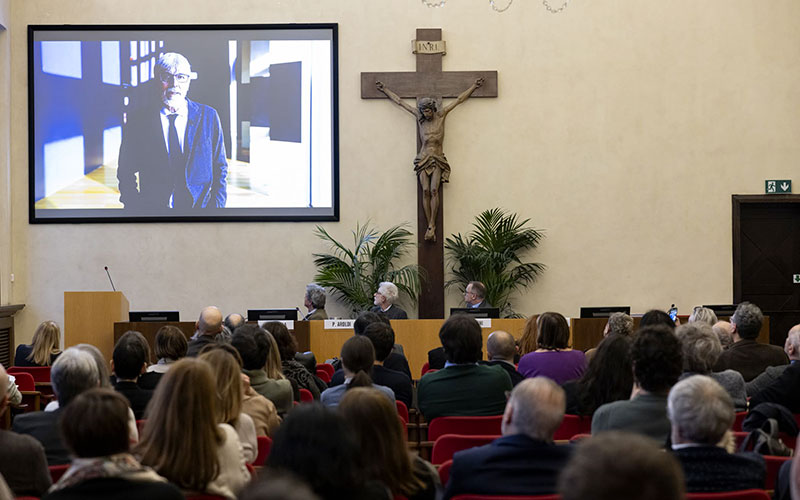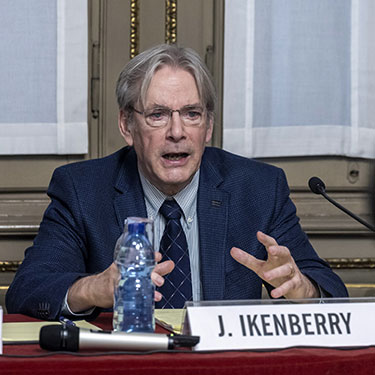 Prolungamento delle iscrizioni a.a. 25/26
Spazio Unicatt - Prolungamento delle iscrizioni
Prolungamento delle iscrizioni ai corsi di laurea triennali e magistrali a ciclo unico 25/26 fino al 6 marzo 2026, con riconoscimento crediti semestre aperto di Medicina
Prolungamento delle iscrizioni a.a. 25/26
Spazio Unicatt - Prolungamento delle iscrizioni
Prolungamento delle iscrizioni ai corsi di laurea triennali e magistrali a ciclo unico 25/26 fino al 6 marzo 2026, con riconoscimento crediti semestre aperto di Medicina
Corsi di laurea
Post laurea
Scegli il tuo percorso
Eventi
51 elementi trovati
-
Lezione aperta Le norme costitutive
Milano - 22 gennaio 2026 -
Seminario Intelligenza Artificiale e instabilità finanziaria
Milano - 22 gennaio 2026 -
Presentazione volume Ortensio
Brescia - 22 gennaio 2026 -
Convegno IL TEDESCO IN LOMBARDIA
Milano - 22 gennaio 2026 -
Convegno La nuova disciplina dei rimedi in tema di pratiche commerciali scorrette
Milano - 23 gennaio 2026 -
Convegno internazionale Letteratura e tutela del paesaggio: Elena Croce, Bassani, Calvino e altri scrittori del novecento italiano
Milano - 23 gennaio 2026 -
Seminario Progetto Erasmus+ Divershubility: concretizzare l’emancipazione e la consapevolezza di sé delle persone con disabilità
Milano - 23 gennaio 2026 -
Convegno Capitale sociale e pratiche di cura: soggetti e strategie di intervento
Milano - 23 gennaio 2026 -
Seminar Series 2026 The importance of being many: dynamics, interaction and aggregation in a multi-sector economy
Milano - 23 gennaio 2026 -
Stage & Placement Recruiting Day L'oréal
Piacenza - 23 gennaio 2026 -
Orientamento alle lauree triennali e a ciclo unico Incontro di preparazione al TIEC: Test di Ingresso a Economia in Cattolica
Online, su Teams - 26 gennaio 2026 -
Convegno Internazionale / International Conference Quarto convegno internazionale di studi su Eugenio Montale
Milano - Dal 26 gennaio 2026 al 27 gennaio 2026 -
Ciclo di seminari CIFREL seminars
Milano - 27 January 2026 -
Incontro di studio Gli internati militari italiani nei lager nazisti. Un'altra Resistenza.
Piacenza - 27 gennaio 2026 -
Workshop Linee guida sull’impatto delle attività di valorizzazione delle conoscenze/terza missione
Roma - 28 gennaio 2026 -
STAGE&PLACEMENT Simulazioni individuali del colloquio di selezione - Umana
Milano - 29 gennaio 2026 -
Cerimonia Inaugurazione Anno Accademico 2025-2026
Roma - 29 gennaio 2026 -
Gara a squadre di Matematica Disfida matematica femminile
Brescia - 30 gennaio 2026 -
Stage & Placement Recruiting Day Lactalis
Piacenza - 30 gennaio 2026 -
Presentazione volume Cattolici nella storia della scuola italiana
Milano - 04 febbraio 2026 -
Conferenza Quali classici? Un canone per l'Europa
Brescia - 05 febbraio 2026 -
STAGE&PLACEMENT Job Target - Lavoropiù Spa
Milano - 10 febbraio 2026 -
Conferenza Delitto e castigo
Brescia - 12 febbraio 2026 -
STAGE&PLACEMENT Cv Point – Gi Group
Milano - 12 febbraio 2026 -
Convegno CORSO AVANZATO IN CHIRURGIA MINI-INVASIVA DEL SURRENE
Roma - Dal 19 febbraio 2026 al 20 febbraio 2026 -
Conferenza Faust
Brescia - 19 febbraio 2026 -
Ciclo di seminari CIFREL seminars
Milano - 24 February 2026 -
Ciclo di incontri L'ordinamento internazionale in tensione
Milano - 25 febbraio 2026 -
Seminario METHEXIS: Matematica informale per l’empowerment in contesti fragili
Brescia - 25 febbraio 2026 -
Conferenza Madame Bovary
Brescia - 26 febbraio 2026 -
Ciclo di incontri Nuovi equilibri e (dis)ordine internazionale in un mondo che cambia
Cremona - 05 marzo 2026 -
Conferenza Don Chisciotte
Brescia - 05 marzo 2026 -
Ciclo di seminari Testi in dialogo - Riscritture letterarie
Milano - 06 marzo 2026 -
Seminario Intelligenza artificiale, diritto e legal prompting
Piacenza - 10 marzo 2026 -
Incontri (Ri)Lettura dei Promessi Sposi
Milano - 11 marzo 2026 -
Ciclo di incontri Economia, produttività e sfide tecnologiche. Dove stanno andando l’Europa e l’Italia?
Cremona - 12 marzo 2026 -
Conferenza Amleto
Brescia - 12 marzo 2026 -
Ciclo di lezioni Linguistica storica e filologia (5 edizione)
Milano - 16 marzo 2026 -
Ciclo di seminari Testi in dialogo - Riscritture letterarie
Milano - 18 marzo 2026 -
Ciclo di incontri L'ordinamento internazionale in tensione
Milano - 18 marzo 2026 -
Ciclo di incontri Futuro e relazioni umane in tempesta. C’è un porto sicuro?
Cremona - 19 marzo 2026 -
Conferenza Divina Commedia
Brescia - 19 marzo 2026 -
Ciclo di incontri Disorientamenti e verità in tensione. Dove va la Chiesa cattolica?
Cremona - 26 marzo 2026 -
Incontri (Ri)Lettura dei Promessi Sposi
Milano - 15 aprile 2026 -
Workshop Il Diritto Internazionale Privato nelle professioni giuridiche
Milano - 16 aprile 2026 -
Ciclo di seminari CIFREL seminars
Milano - 21 April 2026 -
Ciclo di seminari Testi in dialogo - Riscritture letterarie
Milano - 22 aprile 2026 -
Workshop Il Diritto Internazionale Privato nelle professioni giuridiche
Milano - 23 aprile 2026 -
Ciclo di seminari Testi in dialogo - Riscritture letterarie
Milano - 06 maggio 2026 -
Incontri (Ri)Lettura dei Promessi Sposi
Milano - 13 maggio 2026 -
Ciclo di seminari CIFREL seminars
Milano - 16 June 2026
Succede in ateneo

La riflessione
Ciò che lascia Fausto Colombo Nel primo anniversario della morte, un’ampia comunità scientifica si è interrogata sull’eredità dello studioso della comunicazione in un convegno organizzato dall’Ateneo. Info
Attualità
Ikenberry, l’ordine liberale alle prese col “tornado” Trump Il docente della Princeton University ha inaugurato la ‘School of Global Politics 2026’, organizzata dall’Alta Scuola di Economia e Relazioni Internazionali, con una lezione aperta sul primo anno del secondo mandato del tycoon alla guida degli Stati Uniti
Roma
Cure palliative, la giornata inaugurale dei Master per i medici e le professioni sanitarie La presentazione dei progetti formativi e la riflessione su assistenza e percorsi personalizzati. Gli interventi di Paola Binetti, Francesco Zaffini e Giuseppe Fioroni e una Tavola rotonda a più voci sul ruolo delle Università e delle IstituzioniAttualità
Iran, la drammatica lotta per la libertà Le proteste contro il regime represse ancora una volta nel sangue. E la situazione nel Paese resta fragile, frammentata e molto complessa. L'analisi del prof. Riccardo Redaelli, direttore del CRiSSMABrescia
Il cambiamento climatico minaccia il grano Uno studio internazionale pubblicato su Global Change Biology dai fisici ambientali dell'Università Cattolica rivela: il cambiamento climatico e l’ozono minacciano il frumento, con rischi fino al 2100 per la sicurezza alimentare globaleRivista Vita e Pensiero
La Groenlandia contesa fra geopolitica e clima Usa, Russia e Cina si sfidano sulle nuove opportunità nate dallo scioglimento dei ghiacci e dalle sue risorse. L'approfondimento sull'ultimo numero della Rivista Vita e PensieroCremona
Per il 2026 gli italiani oscillano tra sfiducia e bisogno di stabilità EngageMinds Hub: Il 24% degli italiani dichiara di stare peggio rispetto allo scorso anno, il 66% percepisce che la propria condizione è rimasta stabile, solo il 16% confida in un miglioramento. E il 40% è pessimista sul futuro economico del Paese Inaugurazione dell’Anno Accademico 2025/2026 | Il racconto della giornata
Elena Beccalli, Riccardo Muti
Inaugurazione dell’Anno Accademico 2025/2026 | Il racconto della giornata
Elena Beccalli, Riccardo Muti

inaugurazione anno accademico
Inaugurazione dell’Anno Accademico 2025-2026 | L’intervista alla Rettrice Elena Beccalli Elena Beccalli
terzo settore
Menti e cambiamenti Il valore dell'impatto - CattolicaPer il Terzo SettoreUn podcast che racconta dell'impatto che le iniziative e i progetti realizzati dall'Università Cattolica del Sacro Cuore generano a favore della società e delle comunità territoriali in cui essa è radicata. 1 episodi
english content, sociologia
Origami When we think of digital labour platforms, we usually picture drivers and couriers. But what happens when the workers are domestic cleaners and caregivers? This podcast presents the findings of ORIGAMI – Home Care Digital Platforms and Industrial Relations, a project that mapped digital platforms in the home care sector across six European countries, analysing their organisation and working conditions. 6 episodi
giovani
Tutto molto discutibile Tutto molto discutibile parla della libertà, come oggi la percepiscono i giovani GenZ. Non in un discorso teorico, ma affrontandola nella pratica, nella vita di tutti i giorni. A cura degli allievi del Master Fare Radio dell'Università Cattolica del Sacro Cuore 5 episodi
demografia, lavoro
Italia 2050 Che paese sarà l’Italia nel 2050? È possibile oggi capire che strada prendere per governare i cambiamenti in atto? Per governare l'incertezza del futuro bisogna evitare di semplificare problemi complessi. Dobbiamo pensare a lungo termine, considerare tutte le variabili in gioco e creare una rete globale di conoscenza. A cura di Marzio Mian e Nicola Scevola 5 episodi
inclusione
Tutti inclusi Un viaggio tra le voci dell’Università per esplorare gli effetti dell’intelligenza artificiale nella nostra vita. Perchè i robot sono già qui con noi. O forse contro di noi. Alleati dell’uomo o nemici dell’umanità? Massima espressione di intelligenza oppure d’incoscienza? 5 episodi
media
Io sono la radio Una serie a cura degli studenti del Master Fare Radio dell'Università Cattolica del Sacro Cuore 5 episodi
migranti, politica estera
2025, andata o ritorno Una serie di Avvenire realizzata in collaborazione con l’Università Cattolica, che trae spunto dai grandi temi emersi alla Settimana sociale dei Cattolici italiani di Trieste. Cinque puntate per cinque dimensioni chiave di un anno, il prossimo, che si preannuncia come un sottile e delicato crinale. 5 episodi



















